And thus the community perpetually retains a supreme power of saving themselves from the attempts and designs of anybody, even of their legislators, whenever they shall be so foolish, or so wicked, as to lay and carry on designs against the liberties and properties of the subject.
JOHN LOCKEFortitude is the guard and support of the other virtues.
More John Locke Quotes
-







-







I thought that I had no time for faith nor time to pray, then I saw an armless man saying his Rosary with his feet.
JOHN LOCKE -





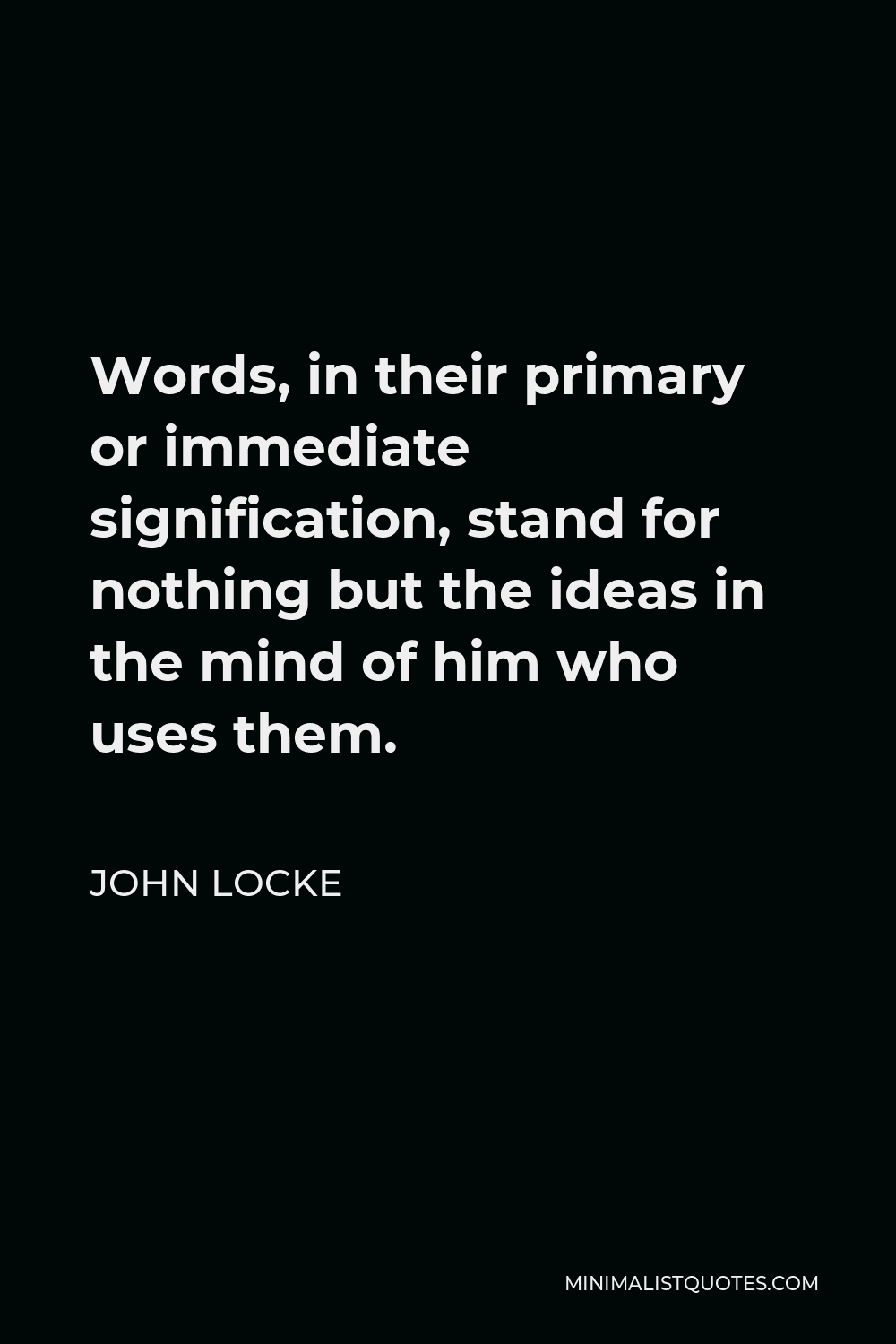
Words, in their primary or immediate signification, stand for nothing but the ideas in the mind of him who uses them.
JOHN LOCKE -






Truth certainly would do well enough, if she were once left to shift for herself…She is not taught by laws, nor has she any need of force, to procure her entrance into the minds of men.
JOHN LOCKE -






Moral laws are set as a curb and restraint to these exorbitant desires, which they cannot be but by rewards and punishments, that will over-balance the satisfaction any one shall propose to himself in the breach of the law.
JOHN LOCKE -





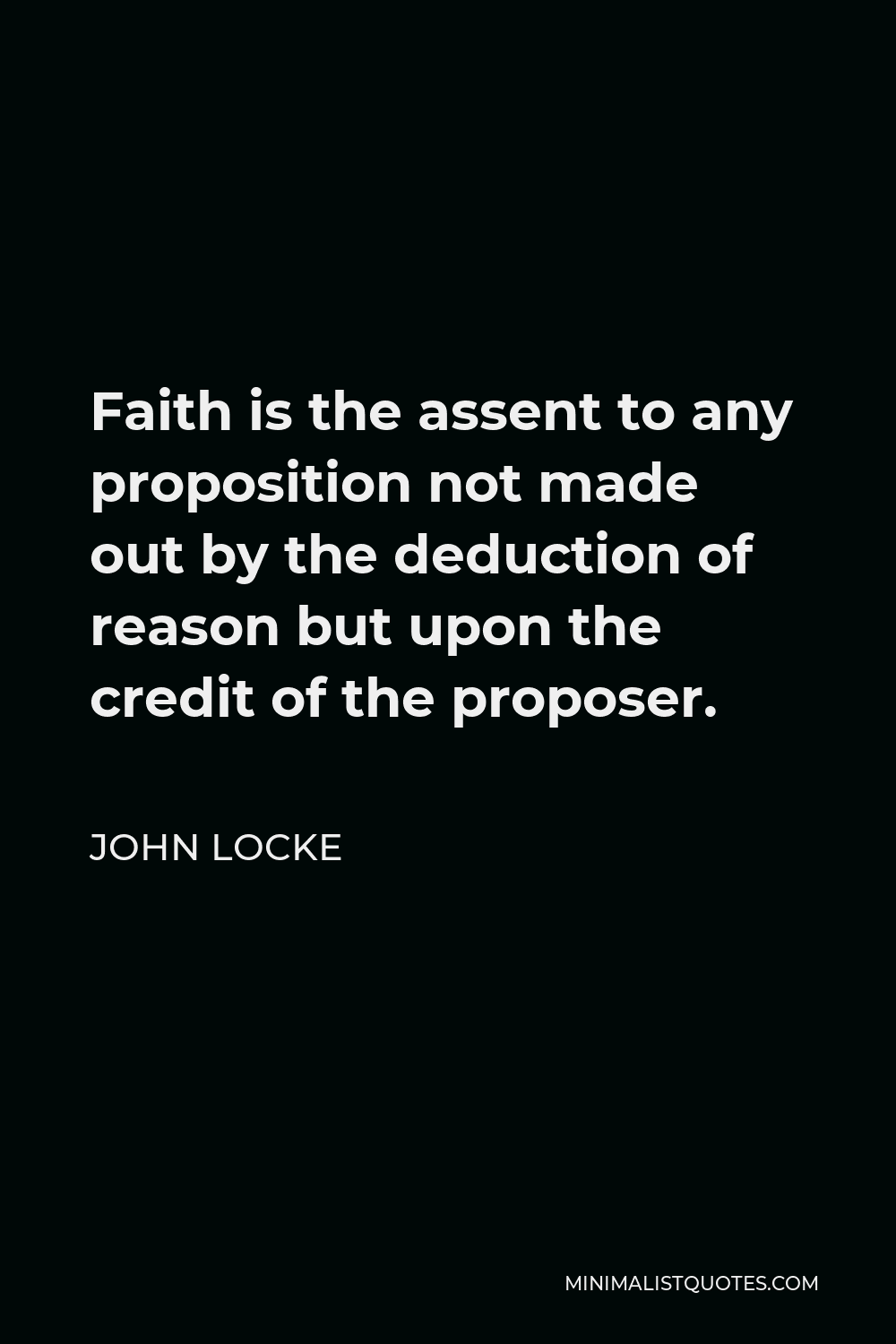
Faith is the assent to any proposition not made out by the deduction of reason but upon the credit of the proposer.
JOHN LOCKE -





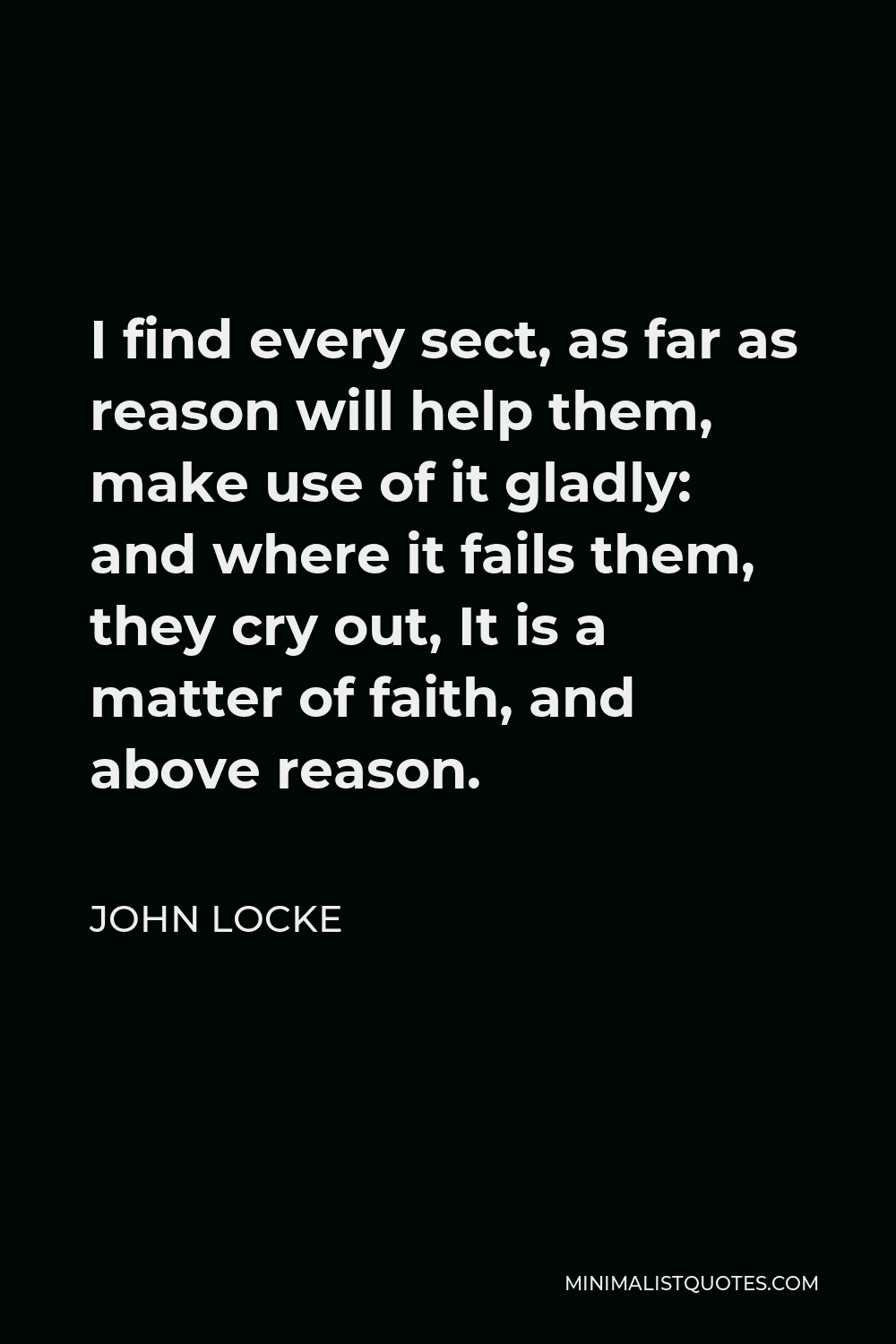
I find every sect, as far as reason will help them, make use of it gladly: and where it fails them, they cry out, It is a matter of faith, and above reason.
JOHN LOCKE -





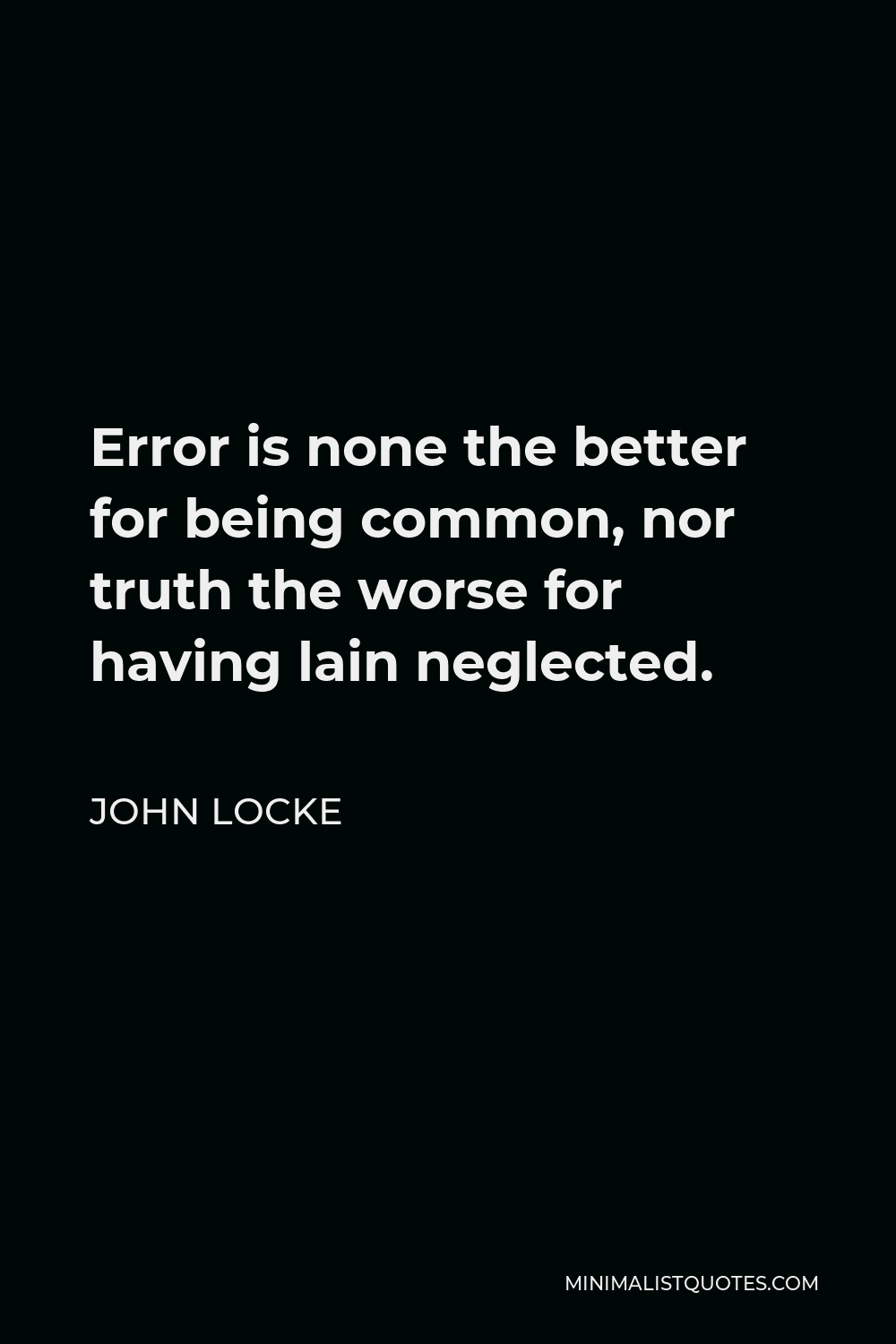
Error is none the better for being common, nor truth the worse for having lain neglected.
JOHN LOCKE -





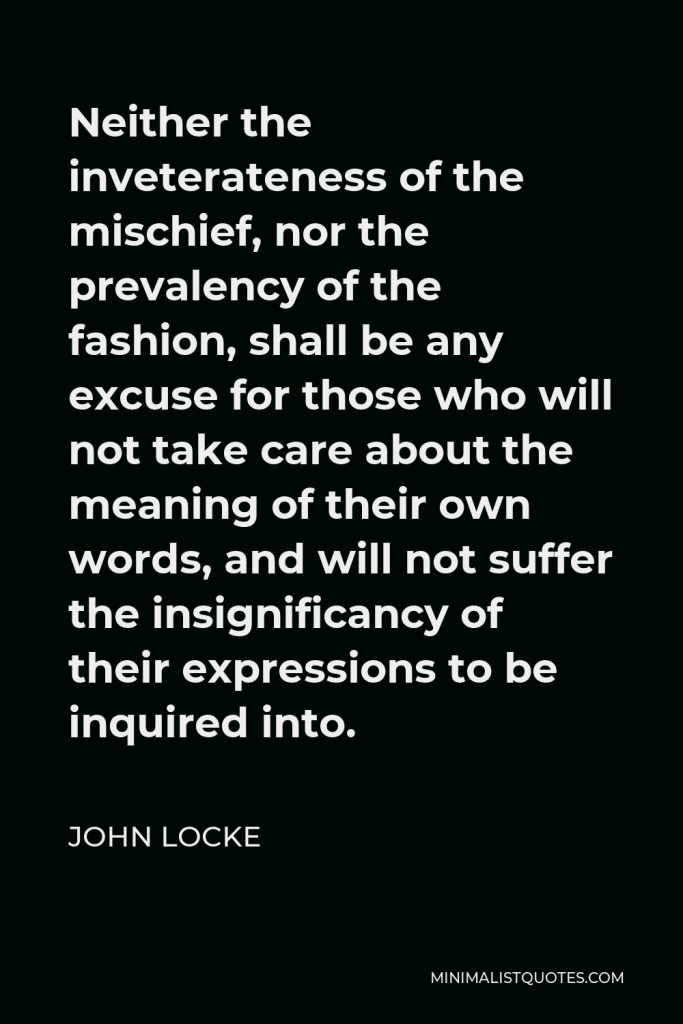

Neither the inveterateness of the mischief, nor the prevalency of the fashion, shall be any excuse for those who will not take care about the meaning of their own words, and will not suffer the insignificancy of their expressions to be inquired into.
JOHN LOCKE -





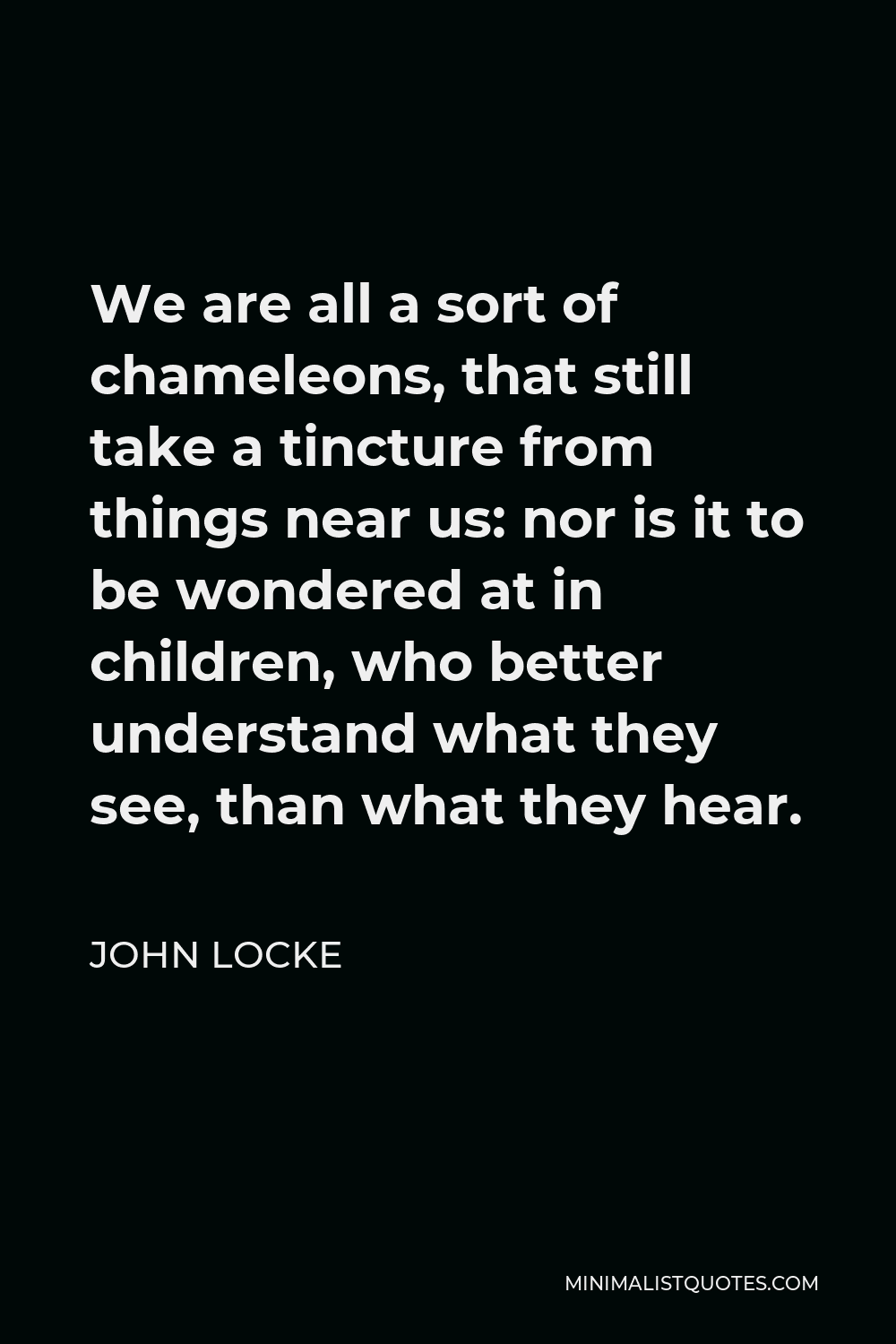
We are all a sort of chameleons, that still take a tincture from things near us: nor is it to be wondered at in children, who better understand what they see, than what they hear.
JOHN LOCKE -






He that will have his son have respect for him and his orders, must himself have a great reverence for his son.
JOHN LOCKE -





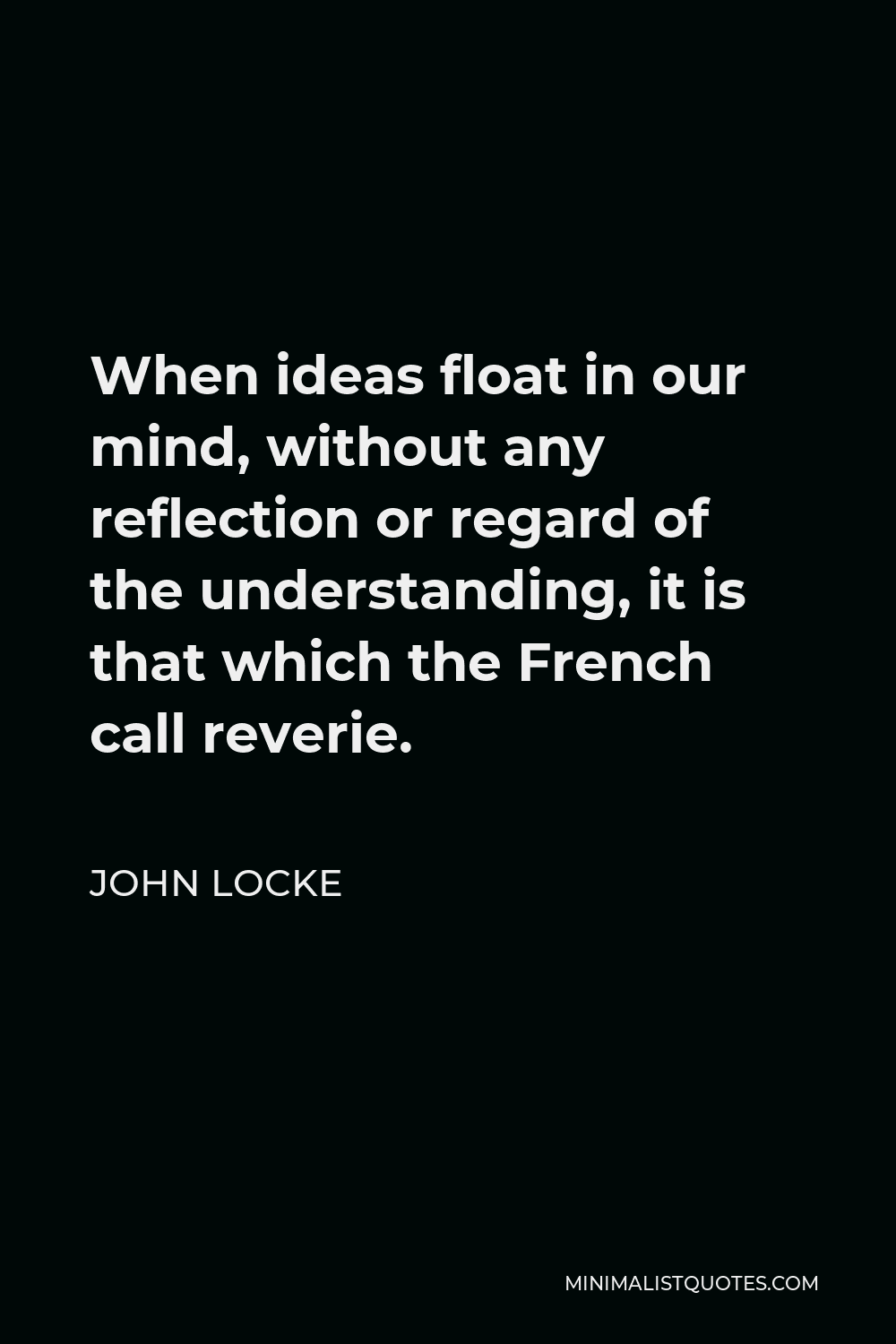
When ideas float in our mind, without any reflection or regard of the understanding, it is that which the French call reverie.
JOHN LOCKE -







Fashion for the most part is nothing but the ostentation of riches.
JOHN LOCKE -






That which parents should take care of… is to distinguish between the wants of fancy, and those of nature.
JOHN LOCKE -





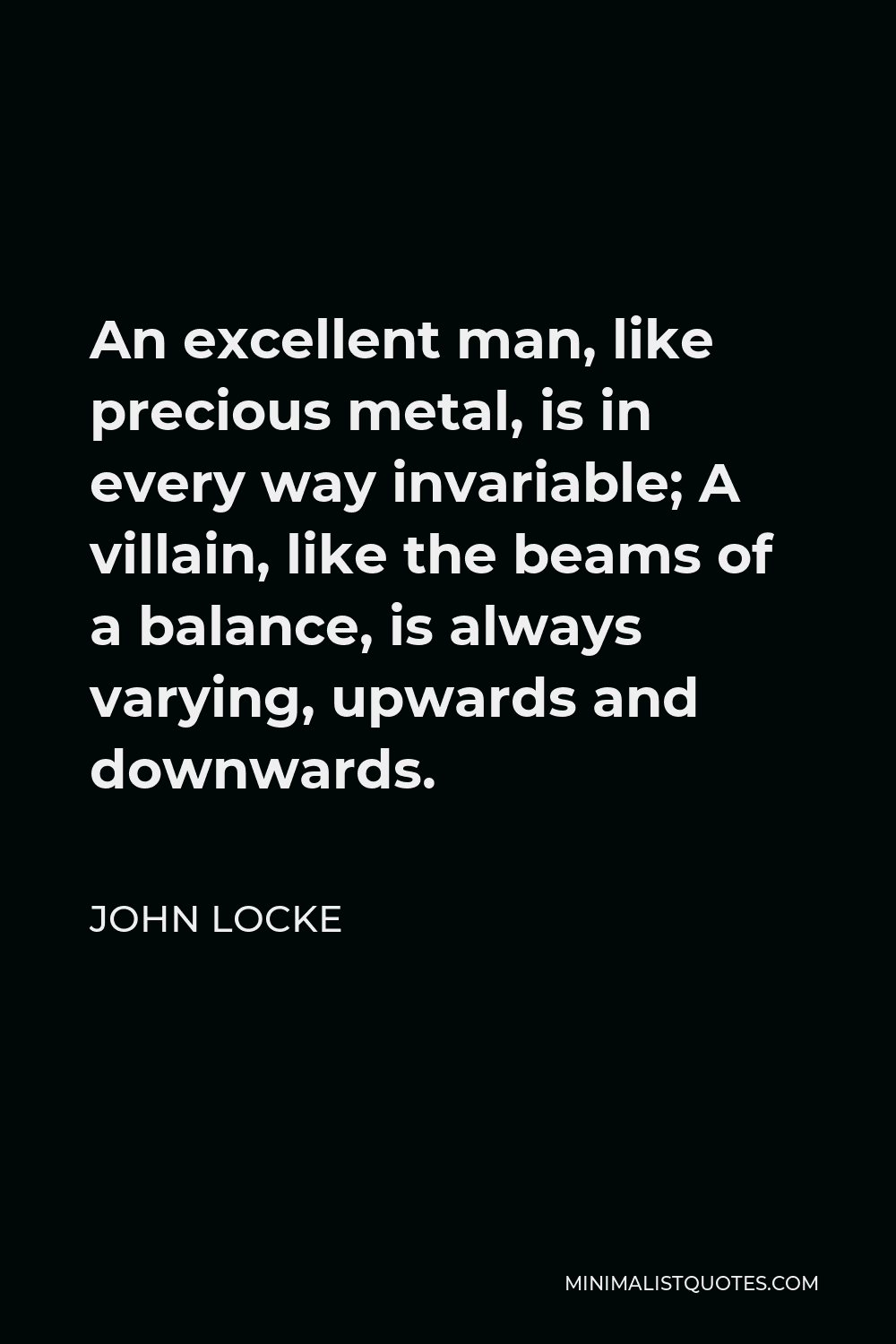
An excellent man, like precious metal, is in every way invariable; A villain, like the beams of a balance, is always varying, upwards and downwards.
JOHN LOCKE -







He that will make good use of any part of his life must allow a large part of it to recreation.
JOHN LOCKE







